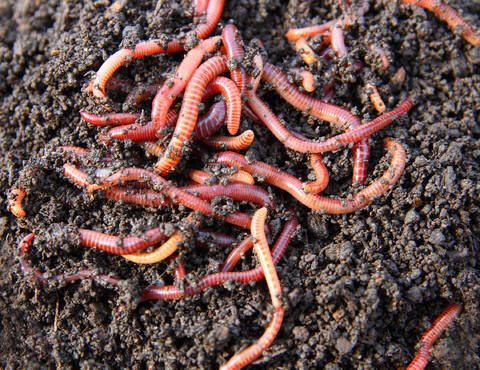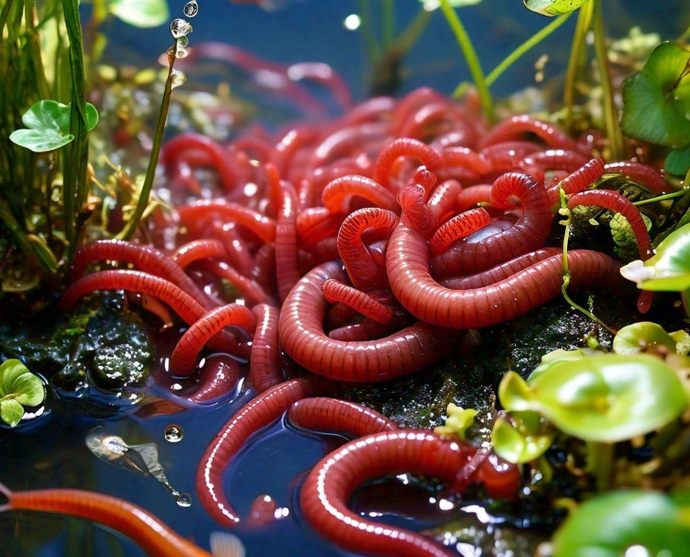Red wigglers: For sustainable composting
Wiki Article
Why Red Wigglers Are Necessary for Organic Farming
Red wigglers play a critical role in organic farming, primarily via their one-of-a-kind ability to disintegrate organic materials and enhance dirt wellness. Their activity not only improves the dirt with vital nutrients however also cultivates a growing environment important for sustainable farming. Moreover, the physical processes they take part in, such as oygenation and wetness retention, contribute dramatically to boosted plant yields. Nonetheless, the extent of their impact on agricultural practices and dirt biology elevates interesting questions concerning the future of natural farming. What effects might this have for farming methods?Role of Red Wigglers in Soil Wellness

Additionally, red wigglers improve soil structure by creating channels as they burrow. These channels enhance aeration and water infiltration, promoting a healthier root setting. Their task also assists in maintaining optimal wetness levels, which is vital for healthy and balanced plant growth.

Benefits of Worm Spreadings
Worm castings, the nutrient-rich waste matter produced by red wigglers, act as an effective amendment for natural farming. These castings are abundant with important nutrients such as nitrogen, phosphorus, and potassium, which are essential for plant growth. Unlike artificial plant foods, worm castings launch nutrients gradually, offering a constant supply over time and lowering the risk of nutrient leaching and drainage.Furthermore, worm castings boost soil structure and oygenation, advertising healthier root systems. Their high raw material web content enhances wetness retention, making it possible for plants to better stand up to dry spell problems. Additionally, worm castings consist of beneficial bacteria that sustain plant wellness by subduing pathogens and improving nutrition uptake.
The application of worm spreadings can bring about increased crop yields and enhanced high quality of fruit and vegetables, making them an invaluable resource for organic farmers. Their use likewise lines up with lasting farming techniques, adding to dirt fertility without the negative environmental impacts related to chemical fertilizers. In general, the consolidation of worm castings into agricultural methods cultivates a much more durable and productive environment, emphasizing the relevance of red wigglers in chemical-free farming systems.

Enhancing Nutrient Cycling
(red wiggler worms for sale near me)Vitamins and mineral cycling is a critical process in natural farming, and the combination of red wigglers plays a crucial function in boosting this cycle. As red wigglers consume rotting organic matter, they eliminate nutrient-rich castings, which are bursting with beneficial microorganisms.Moreover, red wigglers assist to increase the mineralization of nutrients, converting them from inert types right into bioavailable forms that plants can take in. This procedure is crucial for preserving dirt fertility and promoting healthy plant development. The presence of red wigglers likewise urges a varied soil community, cultivating a balance of more nutrients that supports different plant varieties.
Improving Dirt Structure
The improvement of soil structure is vital for promoting a healthy and balanced farming ecosystem, and the activity of red wigglers substantially adds to this improvement. These earthworms play a vital function in freshening the dirt and developing a network of channels that help with water infiltration and root infiltration. As they tunnel via the dirt, red wigglers separate compressed layers, enabling better oxygen exchange and promoting microbial activity.Furthermore, the organic matter created from their waste, called vermicast, improves dirt gathering. This procedure produces steady globs of dirt bits, enhancing dirt porosity and lowering disintegration (red wigglers). The visibility of red wigglers additionally urges the growth of beneficial fungal networks, which are important for nutrient uptake by plants
Promoting Lasting Practices
Integrating red wigglers into chemical-free farming methods not only improves soil health but also advertises lasting farming techniques. These earthworms play a crucial function in nutrition cycling, changing natural waste right into useful compost that enriches the dirt. By making use of red wigglers, farmers can properly minimize reliance on synthetic plant foods, therefore lessening chemical overflow and its harmful effects on ecological communities.In addition, the unification of red wigglers motivates the practice of reusing organic materials, such as cooking area scraps and ranch waste. This waste reduction approach not just lowers disposal prices yet likewise fosters a closed-loop system where nutrients are continually returned to the dirt (red wigglers). Such methods are vital in mitigating environment modification, as they boost carbon sequestration and minimize greenhouse gas discharges
Moreover, red wigglers enhance water retention in the soil, which is critical in times of drought. Their burrowing tasks produce networks that enable water to penetrate much deeper into the ground, therefore promoting effective water use. Eventually, integrating red wigglers right into organic farming not only sustains biodiversity however additionally lines up with the concepts of sustainable farming, offering an all natural method to food production.
Verdict
In conclusion, red wigglers play an important duty in natural farming by significantly improving dirt wellness and fertility. Hence, the combination of red wigglers into farming techniques is crucial for advertising sustainability and improving general dirt top quality.Report this wiki page